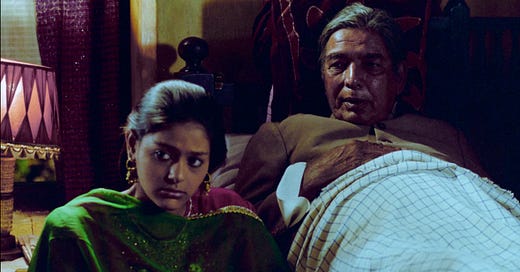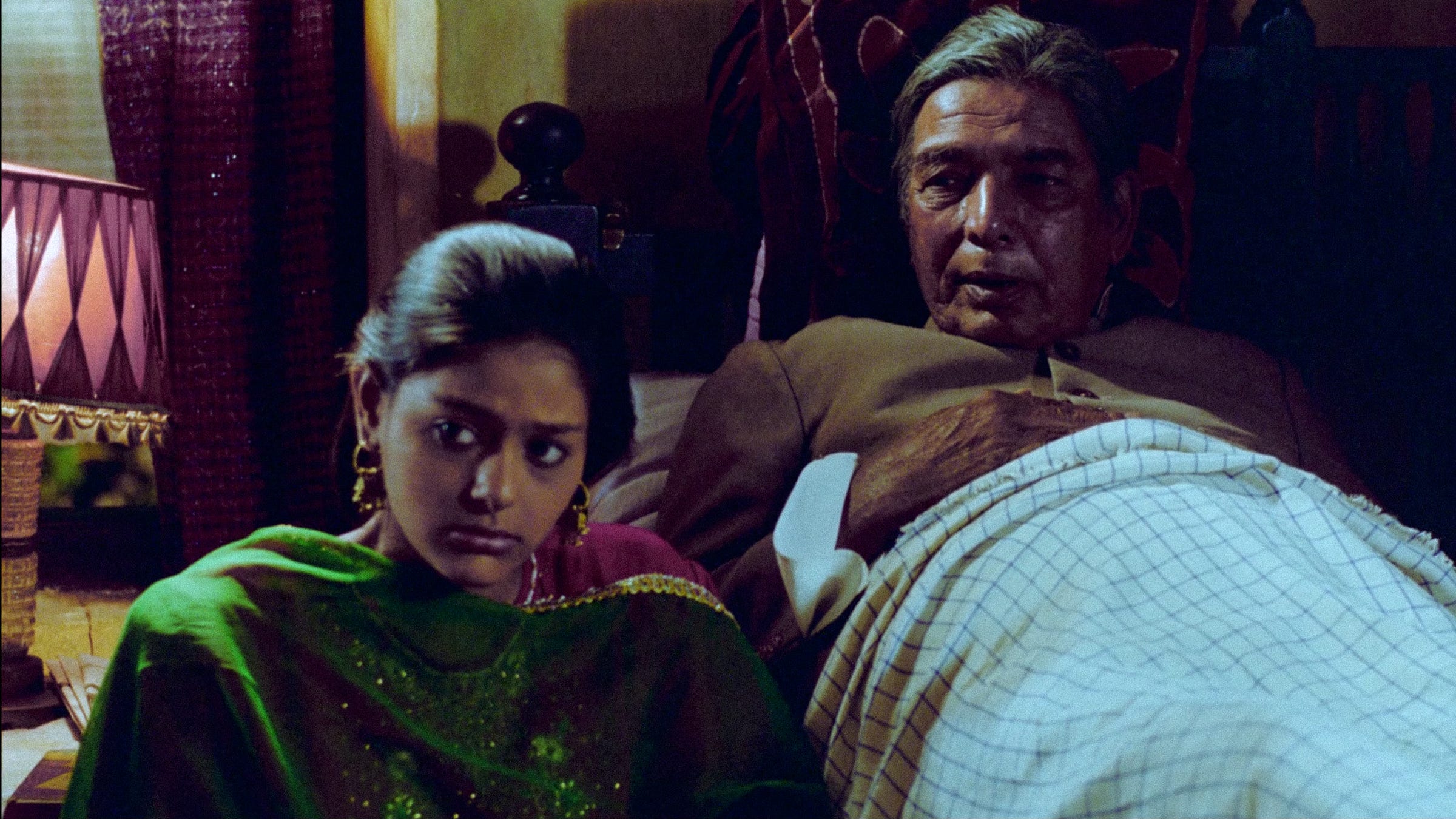Movie of the Week: NASEEM (Saeed Akhtar Mirza, 1995)
Histories of hatred and violence, through the eyes of a child
A landmark of personal and political cinema that stands toe-to-toe with any of its kin in the Western canon. Playing like a more socially grounded, female-centric version of Terence Davies’s The Long Day Closes, Saeed Akhtar Mirza’s Naseem follows the idyls and conflicts of Muslim family life in Mumbai, set against the backdrop of the 1992 riots that culminated in the demolition of Babri Masjid (a hate crime in which Hindu fundamentalists destroyed a mosque in Ayodhya, claiming it to be built on Hindu holy land). Naseem (Mayuri Kango) is a fifteen-year-old girl who lives with her parents, older brother, and declining grandfather (Kaifi Azmi, father of Shabana). When she’s not at school she’s sitting at her grandfather’s bedside, listening adoringly to stories of his youth. The grandfather’s lightly comic anecdotes play in extended flashbacks that turn personal memory into mythology — for the world that the grandfather knew has mostly disappeared, and will cease to exist completely once the mosque falls in the present. Although the grandfather’s past was haunted by British colonialism, Mirza provocatively suggests that today’s Hindu–Muslim violence amongst compatriots is an evil just as great, if not greater. Television coverage of the Ayodhya riots lurks ominously in the background as Naseem maintains a slightly oblivious teenage existence; the convergence of multiple traumatic events later on signal her almost funereal coming of age. If Mirza’s tact and subtlety with such loaded subject matter weren’t enough, it’s Virendra Saini’s superb photography that gives Naseem the weight of a major work. The quality of interior light here evokes nothing less than the paintings of Rembrandt, and the use of repeating shots to capture everyday rhythm is particularly masterful. Discovering under-seen Indian gems like Naseem is one of the great pleasures of my life, but their continued burial is a bitter pill to swallow. I didn’t realize when I picked it for Movie of the Week that it’s no longer streaming on Mubi, and is now available only in bootleg form, without English subtitles, on YouTube. So consider this a plea to bring a great film back into proper circulation!





